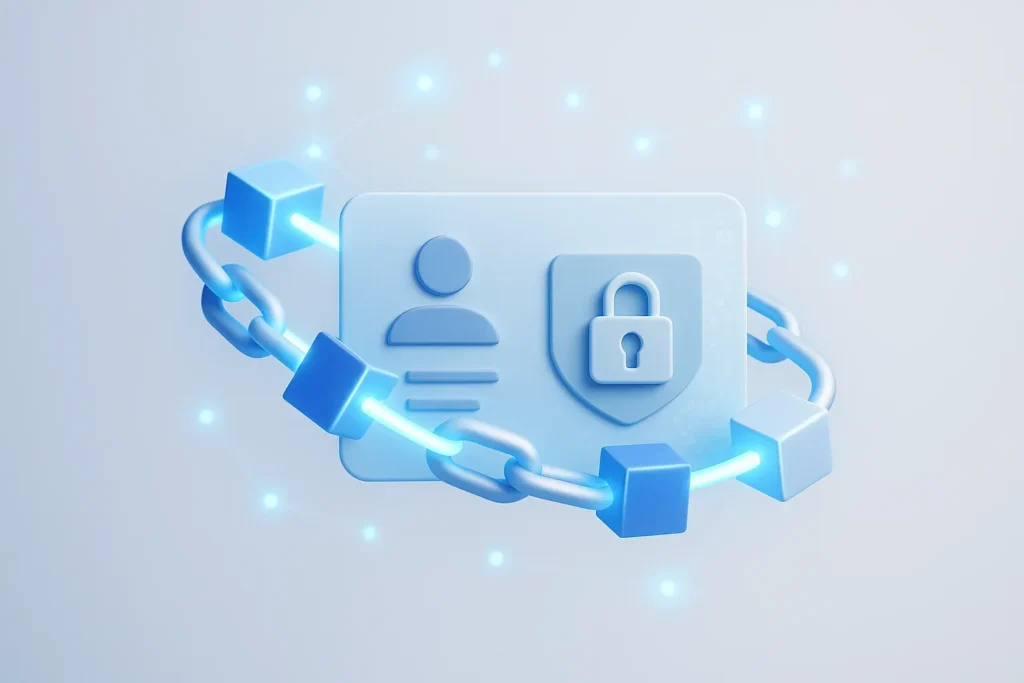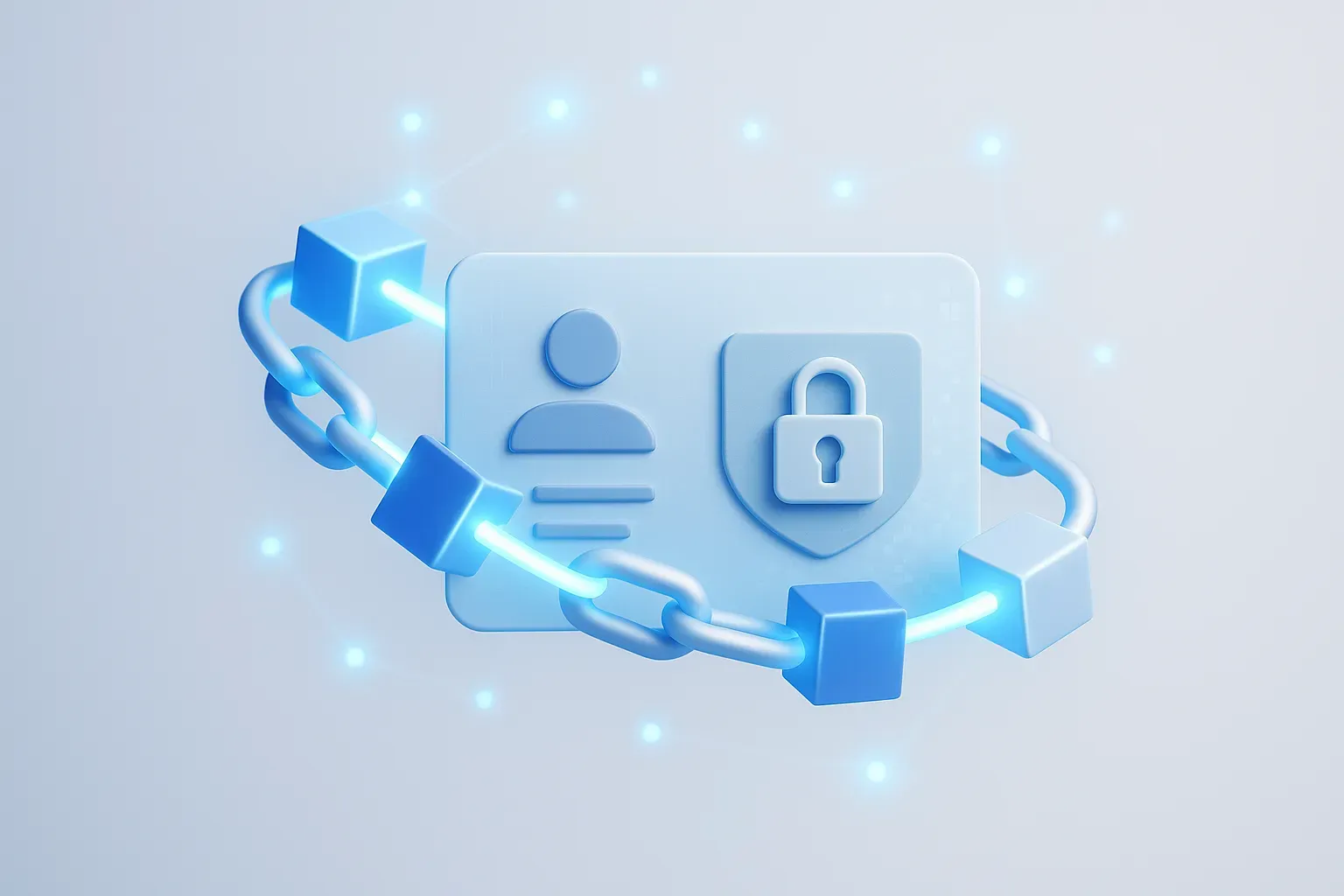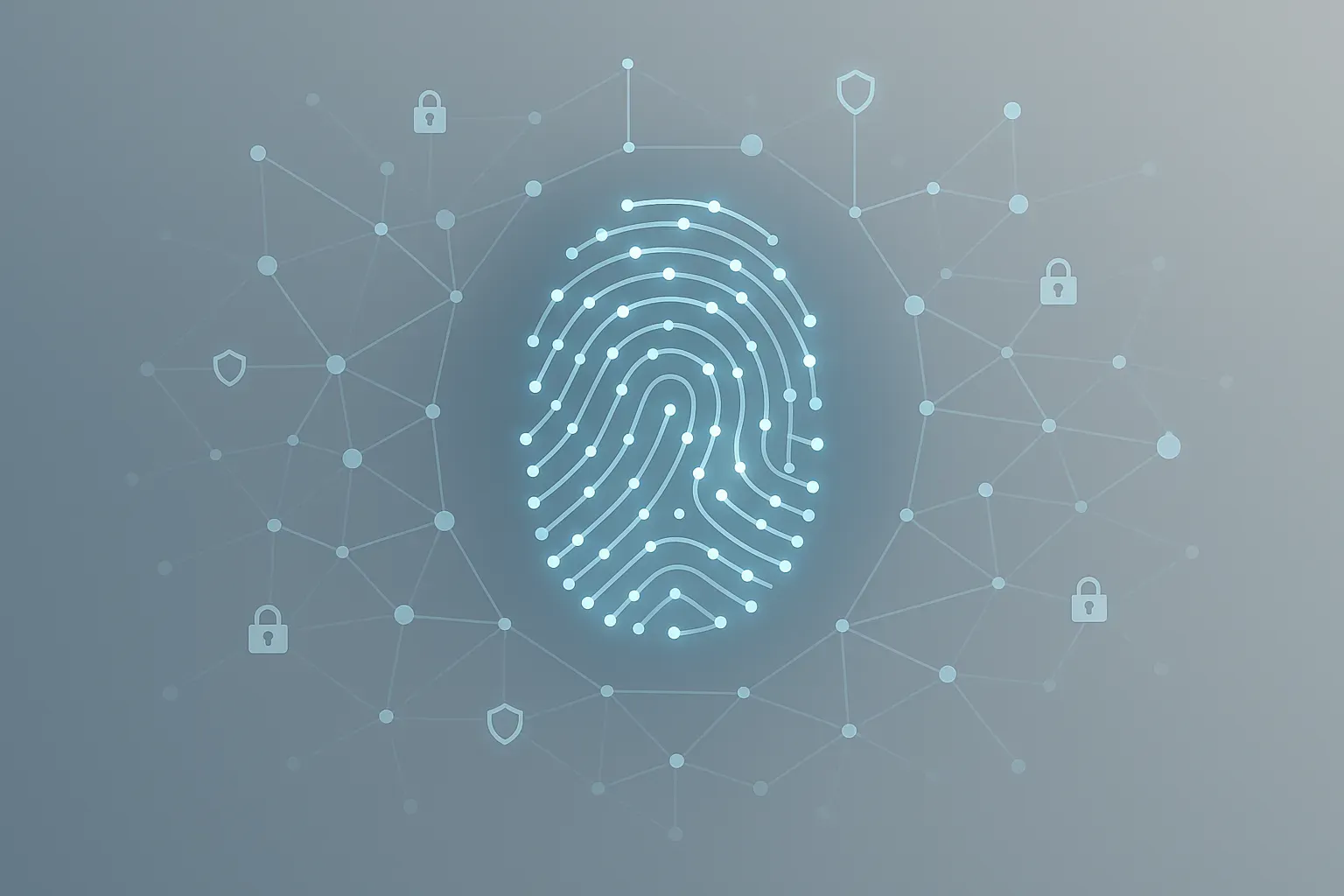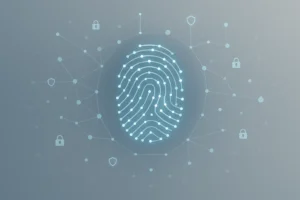Blockchain technology is transforming digital identity management, offering users unprecedented control without reliance on central authorities. Industry experts highlight how decentralized systems allow individuals to securely own and selectively share their credentials across platforms. This shift represents a fundamental change in how personal information is stored, accessed, and protected, potentially eliminating traditional vulnerability points like social security number entry forms.
- Immutable Records Protect Against Unauthorized Changes
- Users Hold Their Own Credentials
- One Account Travels Across All Platforms
- Say Goodbye to SSN Entry Boxes
- Control Your Identity Without Central Authority
- User Ownership with Privacy and Interoperability
- Decentralization Shifts Power to Individuals
- Retain and Share Credentials Selectively
Immutable Records Protect Against Unauthorized Changes
A key advantage blockchain offers for digital identity is immutability and user control.
Once created, the record is permanent and cannot be altered or deleted by any centralized authority, protecting against unauthorized changes.
This is particularly valuable for medical records, educational credentials, professional licenses, and criminal backgrounds, where verification prevents fraud. It also operates globally without much reliance on centralized authorities.
Soulbound tokens (SBTs) also enhance this by being non-transferable and permanently bound to an individual, making them ideal for credentials that should not be sold or transferred.
Privacy is maintained through zero-knowledge (ZK) proofs, which let users prove attributes (like “I’m over 21”) without revealing the underlying data, while decentralized identifiers (DIDs) give individuals control over what information to share.
While government and enterprise pilots are expanding globally, mainstream adoption remains at an early stage.

Users Hold Their Own Credentials
The biggest advantage blockchain brings to digital identity is control. In traditional systems, personal data sits in central databases owned by institutions. That is convenient for them but risky for individuals. If the database is hacked, identities are exposed.
Blockchain changes this. Individuals hold their own credentials. They decide when and how to share them.
Think about proving your identity to open a bank account. Traditionally, you upload a passport, driving license, and proof of address. You repeat this for each provider. Every upload stores sensitive data in another centralized database. This slows onboarding and increases the risk of leaks.
Blockchain-based identity works differently. A trusted authority verifies you once. That verification is stored securely in a decentralized system. After that, you share cryptographic proofs instead of raw documents. The proof confirms validity without exposing personal details. For example, it can confirm you are over 18 without sharing your date of birth.
For customers, this means faster onboarding, fewer risks, and more control over their data. For businesses, it reduces compliance costs, lowers the risk of breaches, and removes the need to store sensitive information. We see blockchain-based identity as a critical step forward. It’s a way to protect people from fraud and identity theft, while at the same time making digital services more seamless and trustworthy.

One Account Travels Across All Platforms
A key advantage is portability.
Instead of creating multiple logins, users only need one account per app and can bring it with them across platforms.
This reduces friction, improves security, and gives users more control over their data. For example, someone could verify their identity once and seamlessly access new services without having to repeat the onboarding process.

Say Goodbye to SSN Entry Boxes
There are many ways blockchain-based identity will reshape life online, but two will be welcomed by almost everyone. First, it kills the “type your SSN here” pop-up: a single cryptographic credential lets lenders pre-qualify you for a mortgage without ever seeing (or leaking) those nine digits. Second, it turns web forums into proof-of-personhood zones, where one wallet = one real human, so bot spam disappears and people think twice before posting drive-by insults because reputations now follow them everywhere. In short: goodbye SSN entry boxes, hello safer communities built on authentic, portable reputations. I welcome all that with open arms.

Control Your Identity Without Central Authority
One of the biggest advantages blockchain brings to digital identity management is control without relying on a central authority. In traditional systems, your personal data is stored in large databases owned by governments or corporations, which makes them tempting targets for breaches. On a blockchain, identity can be tied to a cryptographic wallet that you alone control.
For example, instead of giving your passport or driver’s license data to every website or app, you could prove, “I’m over 18,” or, “I live in this country,” without exposing all your details. That selective disclosure lowers the risk of fraud and keeps your identity portable across platforms.
Imagine applying for a loan or signing up for a service and only sharing what’s necessary, instantly, without passing your entire personal file around. That kind of privacy and efficiency is where blockchain has a clear edge over legacy systems.

User Ownership with Privacy and Interoperability
One key advantage blockchain brings to digital identity management is user ownership and control over data, combined with new tools for privacy and interoperability. Unlike traditional systems where personal data sits in centralized databases, blockchain enables credentials to be held in wallets, verified on-chain, and reused across services.
The main strengths are:
On-chain proven ownership – users directly control their credentials, and verification doesn’t rely on a central authority.
Selective disclosure – also known as zero-knowledge proofs or zkKYC in research and industry. This allows users to share only the attribute required (for example, proving you’re over 18 or from a certain jurisdiction) without exposing full documents.
Composability – once standards and interfaces are defined, identity credentials become plug-and-play. Any app or service can accept them without needing to repeat verification.
For example, in finance, a user could pass a regulated KYC check once and then use a zero-knowledge proof to access multiple DeFi apps, payments platforms, or exchanges without repeatedly uploading sensitive documents. This makes identity management safer (fewer data leaks), more efficient (reusable credentials), and privacy-preserving (only the necessary facts are revealed).
Over time, this approach can extend well beyond finance into areas like healthcare, online voting, or digital services — creating an identity layer that is portable, private, and interoperable across the internet.

Decentralization Shifts Power to Individuals
In my opinion, I think decentralization is the biggest advantage blockchain can offer for digital identity. In the traditional system, your entire identity is in the hands of a single provider, be it a bank, your government agency, or any private institute. This means you completely rely on them to keep your identity safe but also on their mercy to keep your identity from getting breached or even revoking access. But in blockchain technology, the control flips. Every individual owns and completely controls their credentials, which is a fundamental shift of power.
Take this as an example. If you apply for a job in any company, you provide lots of sensitive documents, your complete identity, and access to your personal addresses just to prove a single fact about where you studied. A blockchain-based identity would let them prove that credential instantly, cryptographically, and without exposing the rest of their private data. It’s a more efficient process for employers and a much safer one for candidates.
What excites me even more about blockchain technology is that this advantage is not just a theory; it is a practical approach, which is why we are seeing a major shift from traditional systems in every sector to blockchain technology. Basically, this new system eliminates the risk of data loss, breach of privacy, and makes any verification process faster and more reliable. In simple words, individuals don’t need institutions to vouch for them but they can vouch for themselves. That is the real shift of power from institutes to every individual.

Retain and Share Credentials Selectively
Decentralized control is one of the main benefits blockchain provides for digital identity management. Blockchain enables people to retain and selectively share their credentials using cryptographic proofs, in contrast to traditional systems that store identities in a single database, a tempting target for hackers.
Consider a university graduate applying for a job, for instance. An instantly verifiable and tamper-proof blockchain-verified credential could be shared by the candidate in place of the employer contacting the university or relying on a PDF diploma. Time is saved, fraud risk is decreased, and mutual trust is increased.














